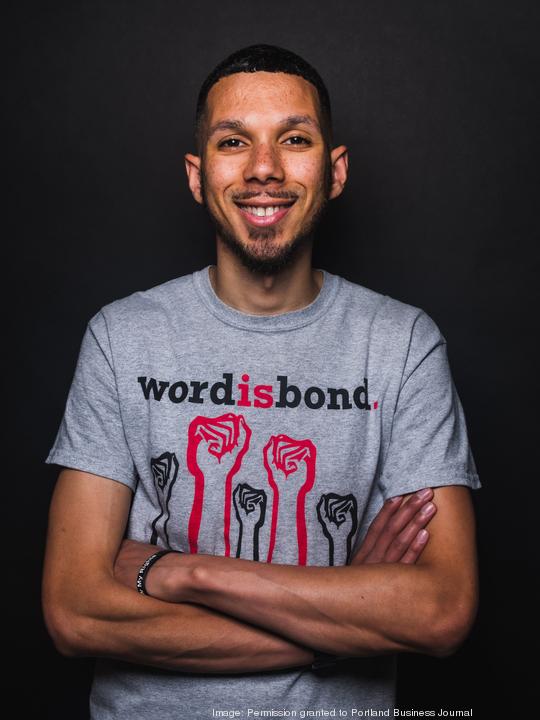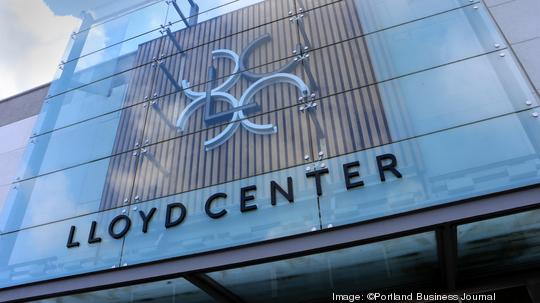
Ice skating at the Lloyd Center? That wasn’t exactly the idea I had in mind when I asked my administrative manager, a former student of mine, to pick out a team-building activity for our organization. I had been to Lloyd Center many times, to pick up a shirt for a birthday party, to spend a gift card at Barnes and Noble, even to drop off students from time to time. Sure, I had seen the ice rink smackdab in the middle of the mall, you can’t miss it. But that idea of actually getting on it never crossed my mind. I was skeptical but reminded myself the idea was to get out and try new things. Besides, social media was abuzz just days before with news that the shopping mall was going to be foreclosed. If nothing else, I could get one last look at the massive building that had somehow snuck its way into my heart.
Since I had moved to Portland to become a high school teacher, I had been hearing stories about the Lloyd Center. The stories I heard came from the mouths of my predominantly Black and Brown students who made up the classrooms at the alternative school where I taught in North Portland. Their pockets were more often filled with dreams than actual cash to spend. Their stories painted a scene of a centrally located space that reflected the broader issues in the city, from meeting up with friends at Holladay Park across the street, to being chased by mall security guards, to being racially profiled. It seemed that every student had a story about the Lloyd Center.

By the time I arrived in Portland in 2016, the Lloyd Center had traveled far from its 1960’S dream of a shopping paradise, to a still-grand building of quickly fleeing businesses and an unfair reputation that had familiar racial undertones. The Lloyd Center had developed an image that while it holds some truth, in terms of the petty crime, is overwhelmingly a product of fear-mongering. The Lloyd Center had become a gathering space for Black and Brown kids that were used to being kicked out of any public space that they gathered. Far from being troublemakers, in reality, they are just kids living in a city that hasn’t truly provided opportunities for them to thrive. With the increased presence of youth of color, so too came the usual complaints, and upturned noses.
As I took to the freshly smoothed rink that Friday, I made a couple of unsteady laps around and looked up at the three floors of now mostly empty retail space above. I saw Joe’s Carmel Corn, the Black-owned candy story still holding space, I saw signs for the food court, where patrons eat and chat at tables overlooking that rink, I saw the boarded-up walls where Macy's had been just a year ago. And while I couldn’t see it, I knew the NAACP office was down on the far end, surrounded by empty-windowed shopping spaces. Mostly what I saw, was possibility.
When I got home that night, I pulled out my laptop, inspired by my visit. I typed up a vision for what I believe Lloyd Center could be. In my proposal for a new Lloyd Center, I put together ideas for what I felt was missing in our community. The final product was a multi-functional community and commerce hub that supports communities of color. The space would encourage cross-cultural collaboration, engagement, businesses development, and community building and feature sculptures, murals, and other artwork that highlight Oregon’s diverse community. In conjunction with much of what is being done to reserve the effects of gentrification and community displacement, I advocate that the building be sold from its current owners to the Albina Vision Trust.
The space would be bookended by a State Museum of the History of Race in Oregon on one end, and a state-of-the-art Youth Performing Arts Center on the other. The museum would be a revenue generator, bringing in students, families, and communities from across the State and beyond to learn about Oregon’s racial legacy, both past and present. The Performing Arts Center would give our city youth space of their own, offering an alternative to the sports-centric offerings of today with dance classes including African dance, ballet, and tap, step teams, as well as poetry slams, talent shows, theatre and comedy classes, and high-tech recording studios all free to our youth.
A current wing of the building would house nonprofits of color, including several that are already at the mall. There would be a co-working space for minority-business owners that would provide collaborative workspaces, free Wi-Fi, printing, and business classes. A commerce wing to bring together the various Chambers of Commerce for communities of color (Asian, African American, Latino, etc.). A grand hall to host year-round independent vendor markets including My Peoples Market. And yes, it would keep the much-cherished ice rink, consolidating existing retail space around it, including retail kiosks, a portion of which would be set aside for youth entrepreneurs. Finally, there would be mixed-use retail and a residential tower featuring affordable housing units.
My vision for a new Lloyd Center is a space to connect so much of what is missing in Portland for our communities of color. Giving us space for our business to incubate and grow, a space for the children to learn the arts, and the greater community to learn from our legacy of racism and grow towards a future of racial equity.



